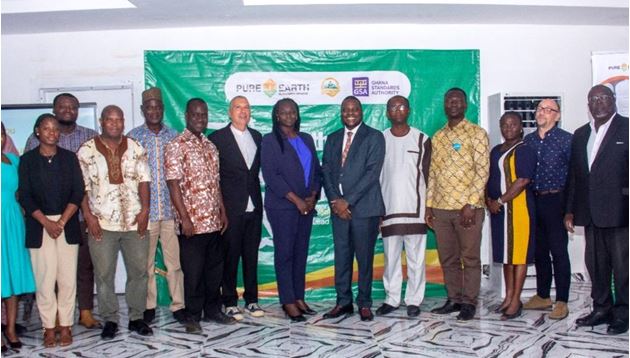By Christabel DANSO ABEAM
A health report by Pure Earth has revealed that 53 percent of children have been found to carry high levels of lead in their blood, raising pressing issues about environmental pollution and gaps in public health protection.
The report, conducted in collaboration with the Ghana Health Service and United Nations Children’s Fund (UNICEF), further pointed out that nationally among all the 16 regions Greater-Accra, Northern and Ashanti Regions had the highest number of children with lead poisoning and highlighted that one out of two children is recorded to be lead-poisoned.
A research conducted by UNICEF also indicates that approximately one in three children worldwide – up to 800 million – have blood lead levels at or above 5 microgrammes per decilitre
Addressing some factors that were discovered to contribute in the rise of lead poisoning, the Ghana Country Director of Pure Earth, Dr. Esmond Wisdom Quansah, highlighted sources such as pollution from industrial recycling of lead, informal recycling of lead, metallic cookware and the traditional eye-liner.
“Lead-poisoning is multi-generational and can destroy the abilities of children in particular. It leads to neurological damage, physical health issues, organ damage, academic and social impacts including some long-term consequences,” he established.
To tackle the growing concern of lead-poisoning, Pure Earth has launched the Northern Ghana Cookware and Cosmetics Project in Accra which aims to open a pathway for collaborative efforts among key stakeholders to foster safe consumer practices, ignite collective commitments toward regulation and compliance and improve safety standards across the cosmetics and cookware industries.
The event, themed ‘Sustainable solutions for safer consumer products:Recycling lead exposure in Ghana’, reflects Pure Earth’s aspiration to ensure that every Ghanaian has access to safe and environmentally friendly consumer goods.
Speaking at the launch, Prof. Nana Ama BRown Klutse, Chief Executive Officer (CEO), Environmental Protection AUTHORITY (EPA), noted that the Authority is going to do diligent research and engagements with metallic cookware producers before their products are allowed into the market.
“EPA is committed to addressing this issue; we are going to work with all stakeholders, Pure Earth, Ghana Standard Authority (GSA) among others, to encourage elimination of lead in the production of these cookwares.”
She further proposed mandatory education for all producers in order to expose them to the harmful effects of their practices.
Dr. Paul Fosu, Head-Food and Agriculture Department, GSA, in his speech also reaffirmed the Authority’s commitment to using its accredited laboratories to conduct rigorous product testing and ensure the credibility of products used for manufacturing.
He announced that GSA, through the project, will develop a certification system for local cookware manufacturers to ensure their products are safe for public use.










